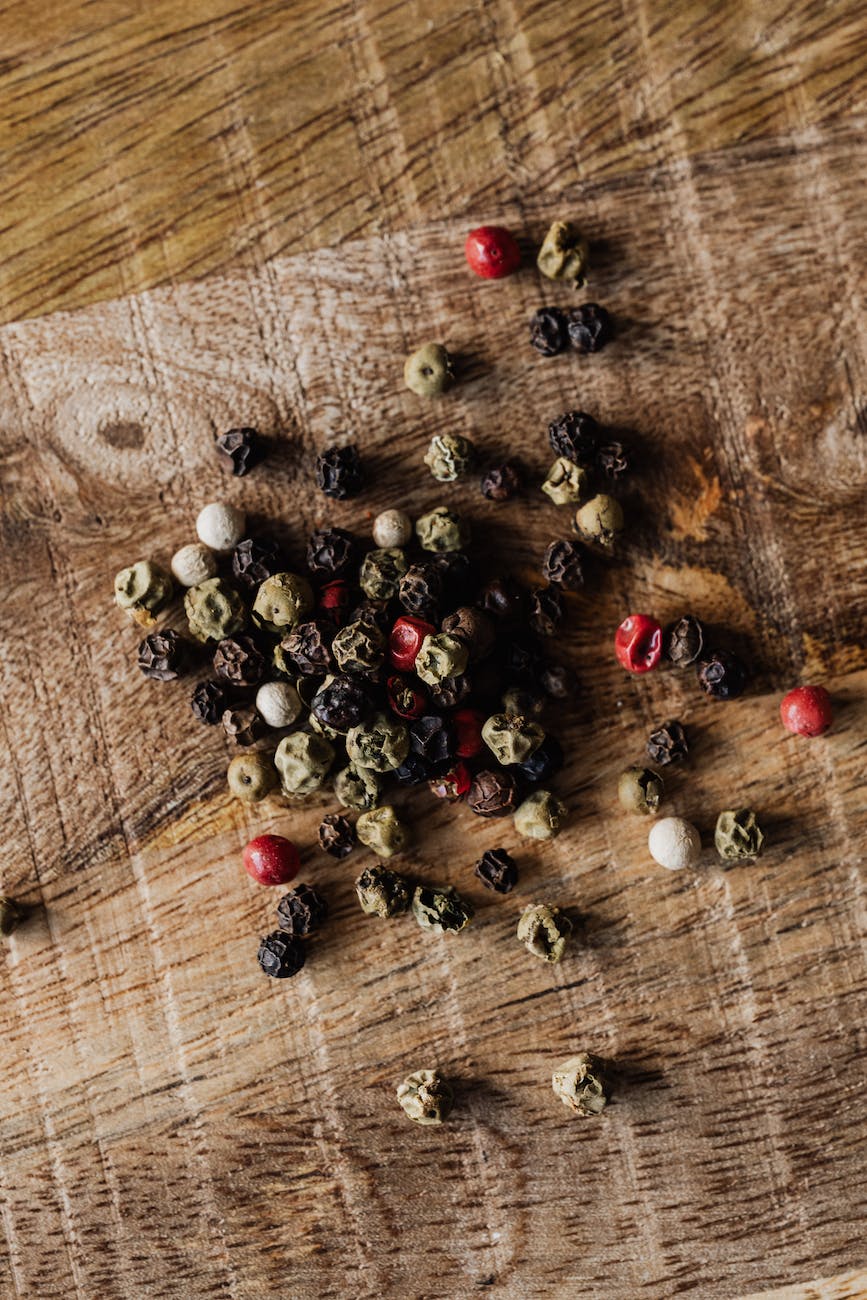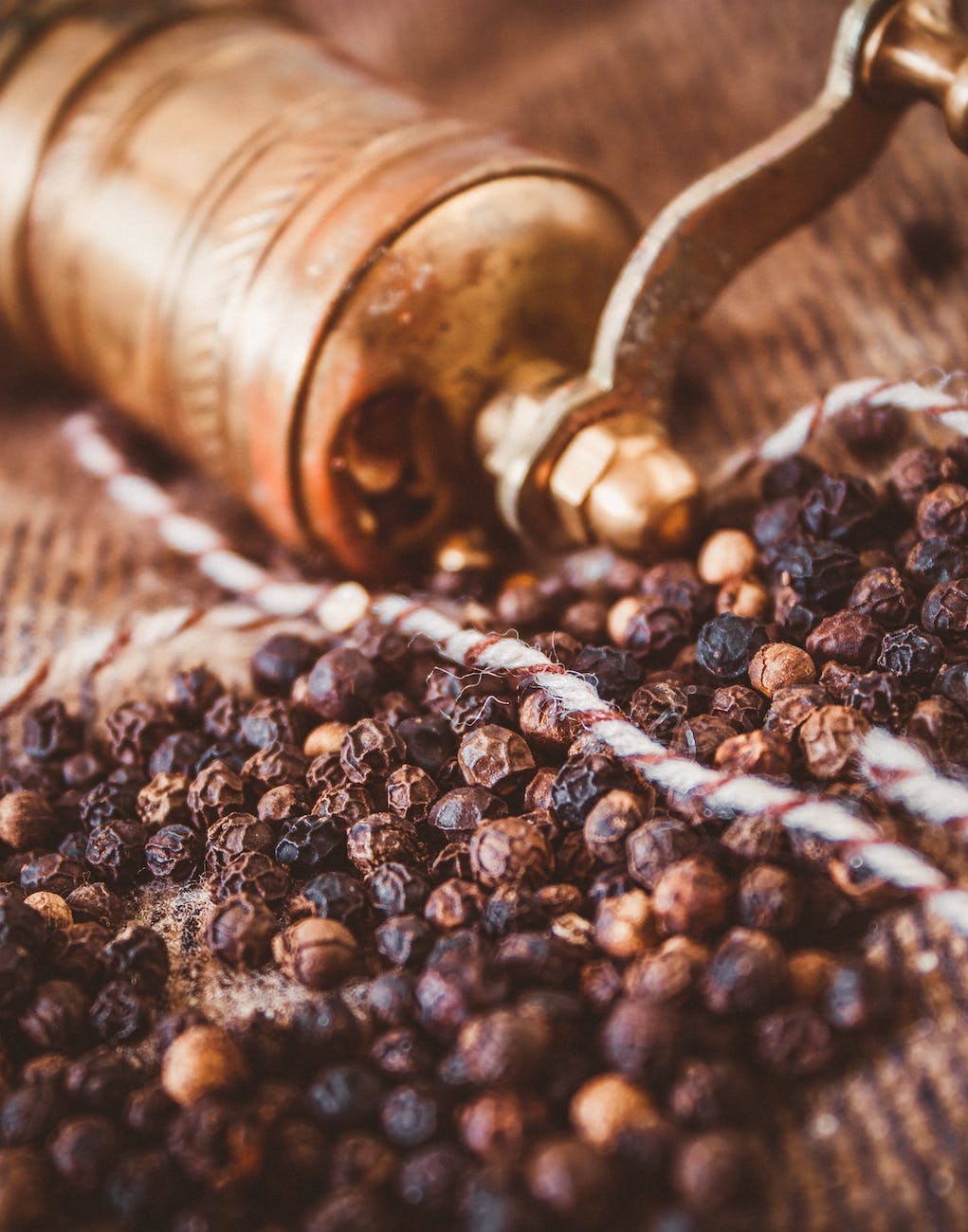
Black pepper, a staple in cuisines worldwide, is not just a flavor enhancer but also a treasure trove of health benefits, especially for the eyes. With its potent compound, piperine, black pepper offers a unique approach to supporting eye health and improving vision naturally. This article from Masala Monk delves into four natural remedies that utilize black pepper to safeguard your vision and promote overall ocular health.
Black Pepper: A Spice for Sight
The medicinal properties of black pepper extend beyond its culinary uses, playing a crucial role in Ayurvedic treatments for centuries. Rich in antioxidants, anti-inflammatory agents, and nutrients, black pepper can contribute significantly to maintaining and enhancing eye health.
Four Natural Remedies with Black Pepper for Eye Health
- As a Seasoning for Nutrient Absorption: Incorporating black pepper into your diet can enhance the absorption of essential nutrients like beta-carotene and vitamin A, vital for eye health. Sprinkle it on salads, soups, and other dishes to not only boost flavor but also improve nutrient uptake.
- Piperine Supplements for Vision Support: Piperine, the active compound in black pepper, has been shown to support eye health and vision. Taking piperine supplements can provide a concentrated dose of this beneficial compound, though it’s crucial to consult with a healthcare provider before starting any new supplement regimen.
- Black Pepper Tea for Antioxidant Benefits: A warm cup of black pepper tea can serve as a comforting way to enjoy the eye health benefits of this spice. To prepare, add a teaspoon of black pepper powder to boiling water, steep for a few minutes, and then strain. Honey or lemon can be added for taste. This tea can help reduce oxidative stress, protecting the eyes from damage.
- Black Pepper and Honey Remedy: Mixing black pepper with honey creates a powerful remedy that can help reduce inflammation and improve vision. Consume a mixture of a teaspoon of black pepper powder and a tablespoon of honey daily to harness these benefits.
Integrating Black Pepper into Your Eye Care Routine
The versatility of black pepper makes it easy to incorporate into your daily routine for eye health. Whether used as a seasoning, in tea, or as a supplement, black pepper can offer a simple yet effective natural remedy to support vision and protect against common eye issues.
Navigating the Use of Black Pepper with Care
While black pepper offers numerous benefits for eye health, moderation is key. Excessive consumption can lead to discomfort, and direct application to the eyes should be avoided. Always prioritize safety and consult healthcare professionals when integrating new supplements or remedies into your health regimen.
Black pepper’s role in enhancing eye health is a testament to the power of natural ingredients in supporting our well-being. By embracing these simple yet effective remedies, you can take a proactive step towards maintaining healthy vision and protecting your eyes, all while enjoying the rich flavors that black pepper adds to your meals.
Conclusion: A Spice for Sight
Embracing black pepper for eye health reflects a broader movement towards natural, holistic approaches to wellness. Its surprising benefits underscore the importance of dietary choices in our overall health strategy, reminding us that sometimes, the most effective remedies are found in the most common of spices.
Blog Tags: Black Pepper, Eye Health, Natural Remedies, Vision Improvement, Dietary Health, Antioxidants, Piperine Benefits, Holistic Health, Ayurveda, Nutrient Absorption












